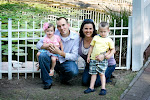The trouble is, when we put him through the CT scanner as part of the initial evaluation, we discovered a mass in his pancreas which is likely to be cancerous. What a cruel turn of events. As we enter the room to tell him the news and discuss his options, I find myself wondering....would I want to know?
Mr. S faces the news initially with remarkable practicality. "If your treatment adds 50 years , we don't need to bother because I know I don't have that long to live. But if you can add a few years to my life, that would be something worth pursuing. I honestly love my life"
We return the next day to discuss the situation again, this time with one of our pancreatic experts. At some point, he mentions that Hospice may be an option. "Hospice. Are you familiar with hospice?" the attending asks. Five seconds pass. Slowly. Without answer. Then, "Yes".
Here we are with Mr. S, and in the course of two days he's gone from worrying about his daily errands, to wondering about some potential trouble, to preparing for the end. I wish we didn't have to tell him...
